Our regular listen to and look at living, breathing musicians that you may not know yet, but I know you should… And can, right here and now, since they’re nice enough to offer so much good listening online:
Julie Harting (b. 1957 — US, NYC)
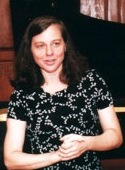 The talk is always “Oh that Schoenberg, making this artificial system that nobody really gets or feels!”… Except there are a few people like Julie:
The talk is always “Oh that Schoenberg, making this artificial system that nobody really gets or feels!”… Except there are a few people like Julie:
When I was 7 or 8, I found a miniature violin in my father’s closet, because he played violin when he was a kid. I also found a book called A Tune a Day, and I taught myself from the book to play a little violin, so it was clear that I was musical. But I ended up playing the tuba, but it was never really my instrument. It was really weird, loving music and being accomplished at it, but not playing an instrument that was mine. I ended up very depressed and confused, and when I was 18, after a year of college, I hitchhiked to Montreal with a friend. I was alone a lot, and one time when I was walking alone on a huge hill in the back of McGill University, I had this thought that at the time felt like it was coming from outside of me, that said I should compose. I took that and I said, “OK, that’s it.” It was my lifeline. After that, I went to Berklee College of Music in Boston, and then I finally got to Manhattan School of Music. […] But musically, Schoenberg is my big influence – his music and also his writings. Schoenberg’s also a person who’s very much concerned with integrity. It’s an inner journey when you compose, so you write the music that you feel is right, which means there’s kind of this morality to it, in a sense. You search for yourself, for what’s honest, and what’s truthful, and that’s what you write in music. Schoenberg’s such a key person for that, as well as Beethoven. Mahler’s great, too.
Maybe Julie’s music is “old school”; but if it is, I can happily go back there to study a little. It’s never a question of style so much as the voice, and Julie’s is a wonderfully distinct voice. At her site linked above, you can hear a number of her pieces; I’d particularly recommend the Trio for flute, cello and piano, and hoc est corpus meum for solo violin.
Samuel Vriezen (b. 1973 — Netherlands)
 Samuel posts around these parts, though infrequently enough that I feel OK about plugging him here. We’ve been bumping into each other for years on the USENET classical newsgroups, a happy breeze of true contemporary thinking amid all the John Williams wannabees and folk who haven’t gotten past Holst or even Yanni. From the rather complicated and involved pieces of his time in University, he’s been progressively paring back both his scores and materials; still finding the complicated and involved, but arising out of seemingly simple and clear actions and reactions. He’s also great Euro-advocate of our own expat composer, Tom Johnson, who pioneered many of these same concerns. Samuel also performs, and has helped produce a number of great exploratory concerts in Amsterdam over the years. His site linked above has plenty of listening, both to his own work and others equally interesting (Johnson included). If you’re ever headed to Amsterdam, he’s your hook-up, go-to guy.
Samuel posts around these parts, though infrequently enough that I feel OK about plugging him here. We’ve been bumping into each other for years on the USENET classical newsgroups, a happy breeze of true contemporary thinking amid all the John Williams wannabees and folk who haven’t gotten past Holst or even Yanni. From the rather complicated and involved pieces of his time in University, he’s been progressively paring back both his scores and materials; still finding the complicated and involved, but arising out of seemingly simple and clear actions and reactions. He’s also great Euro-advocate of our own expat composer, Tom Johnson, who pioneered many of these same concerns. Samuel also performs, and has helped produce a number of great exploratory concerts in Amsterdam over the years. His site linked above has plenty of listening, both to his own work and others equally interesting (Johnson included). If you’re ever headed to Amsterdam, he’s your hook-up, go-to guy.
 Translating pop music into more ambitious musical forms is a risky business that sometimes produces surprising results. Who would have guessed, for example, that Twyla Tharp’s recycling of Billy Joel’s songs to tell the central story of the Sixties generation would be such a compelling and moving theatrical experience–an effect greatly heightened by having those songs reproduced note by note on stage by the world’s best tribute band. Once you’ve seen it, you’re forced to admit that Joel (who you might have previously taken lightly, as I did) writes really intelligent songs that display a wide and deep musical versatility. It’s one of those ‘aha’ moments like seeing Fleetwood Mac and realizing that without the undersung Lindsay Buckingham’s fabulous guitar work and arrangements, they’re pretty much another lounge act.
Translating pop music into more ambitious musical forms is a risky business that sometimes produces surprising results. Who would have guessed, for example, that Twyla Tharp’s recycling of Billy Joel’s songs to tell the central story of the Sixties generation would be such a compelling and moving theatrical experience–an effect greatly heightened by having those songs reproduced note by note on stage by the world’s best tribute band. Once you’ve seen it, you’re forced to admit that Joel (who you might have previously taken lightly, as I did) writes really intelligent songs that display a wide and deep musical versatility. It’s one of those ‘aha’ moments like seeing Fleetwood Mac and realizing that without the undersung Lindsay Buckingham’s fabulous guitar work and arrangements, they’re pretty much another lounge act. Recent postings here notwithstanding, I swear I’m not on a complete György Ligeti kick; but it just so happens that the German-news-in-English website Sign and Sight has printed the translation of a
Recent postings here notwithstanding, I swear I’m not on a complete György Ligeti kick; but it just so happens that the German-news-in-English website Sign and Sight has printed the translation of a 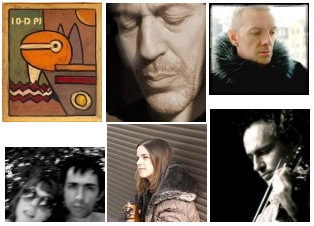 Rather than go in-depth on one or two musicians, we’re going to play epicurean. The back-stories and other works of each of these musicians may (or sometimes, may not) be found easily enough with a few clicks around; I’ll leave that up to you. Right now, it doesn’t matter; I only want to lead you to a specific track on their individual Myspace pages, tracks that keep echoing around in my mind long after the first encounter.
Rather than go in-depth on one or two musicians, we’re going to play epicurean. The back-stories and other works of each of these musicians may (or sometimes, may not) be found easily enough with a few clicks around; I’ll leave that up to you. Right now, it doesn’t matter; I only want to lead you to a specific track on their individual Myspace pages, tracks that keep echoing around in my mind long after the first encounter. [Update: Due to the flaky options Myspace offers for putting anything other than pop songs on the site, I passed over the tiny bit that tells me that “Ageha Tokyo” is actually a piece by the composer Samson Young (Hong Kong, but currently finishing his study at Princeton). A wonderful piece nonetheless, and Olivia’s is a fine performance. Samson’s own website, with much more information and listening is at
[Update: Due to the flaky options Myspace offers for putting anything other than pop songs on the site, I passed over the tiny bit that tells me that “Ageha Tokyo” is actually a piece by the composer Samson Young (Hong Kong, but currently finishing his study at Princeton). A wonderful piece nonetheless, and Olivia’s is a fine performance. Samson’s own website, with much more information and listening is at  Americans like to sit on their hands. Even when they’re telling the truth you have to worry. Are you trying to take something from me, steal my identity, assault my assiduously guarded self-image? I may be feeling something, but you’ll have to read between the lines. God forbid I should tell you what and why, and if I do it will likely be too late. These curious thoughts came to mind when I caught Lebanese oud master-composer-singer
Americans like to sit on their hands. Even when they’re telling the truth you have to worry. Are you trying to take something from me, steal my identity, assault my assiduously guarded self-image? I may be feeling something, but you’ll have to read between the lines. God forbid I should tell you what and why, and if I do it will likely be too late. These curious thoughts came to mind when I caught Lebanese oud master-composer-singer 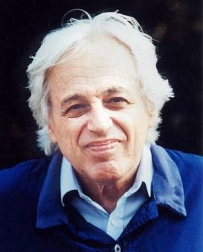 Without risk, one does not accomplish anything; one remains mediocre. When I left Hungary, I had no idea what was going to happen; perhaps I was going to be shot at the border… (György Ligeti, interview with Pierre Gervasoni, 1997)
Without risk, one does not accomplish anything; one remains mediocre. When I left Hungary, I had no idea what was going to happen; perhaps I was going to be shot at the border… (György Ligeti, interview with Pierre Gervasoni, 1997)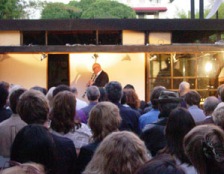 In 1998, L.A. artist Cindy Bernard and friends started a series of concerts and installations that became the non-profit organisation
In 1998, L.A. artist Cindy Bernard and friends started a series of concerts and installations that became the non-profit organisation 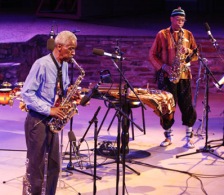 The list of performers is long and varied, from Pauline Oliveros and James Tenney to Chas Smith and Rick Cox; Roscoe Mitchell and Joseph Jarman to Jessica Rylan and Tom Grimley; Harold Budd, Petra Haden, Tetuzi Akiyama, Phil Gelb, etc… even my much-admired internet buddies Johnny Chang and Jessica Catron. If you’ve been spending all your time sitting in the concert hall listening to Wuorinen, here’s you’re chance to loosen up — and catch up — on all kinds of other vital forms of new music in the here-and-now.
The list of performers is long and varied, from Pauline Oliveros and James Tenney to Chas Smith and Rick Cox; Roscoe Mitchell and Joseph Jarman to Jessica Rylan and Tom Grimley; Harold Budd, Petra Haden, Tetuzi Akiyama, Phil Gelb, etc… even my much-admired internet buddies Johnny Chang and Jessica Catron. If you’ve been spending all your time sitting in the concert hall listening to Wuorinen, here’s you’re chance to loosen up — and catch up — on all kinds of other vital forms of new music in the here-and-now.